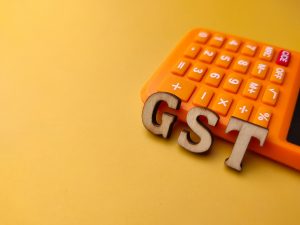
The GST Council, in its meeting on October 7, is likely to clarify that supply of electricity by real estate companies, malls and airport operators to their lessees (occupants), even if billed separately, is exempt from Goods and Services Tax (GST) as it forms a part of composite supply of renting the immovable property, sources aware of the development said.
The clarification is likely to be discussed in the council meeting as doubts were being raised by the industry on the applicability of GST on the inward supply of electricity by real estate companies.
“The GST Council is likely to clarify that whenever electricity is being supplied with renting of immovable property it forms a part of composite supply where the principal supply is renting of immovable property and maintenance of premise is an ancillary supply. Even if electricity is billed separately, the supplies will constitute a composite supply and therefore, the GST rate on renting of immovable property would be applicable,” the source told Moneycontrol.
However, where the real estate owner supplies electricity as a pure agent, it will not form part of the value of his supply, he said.
Real estate companies supply electricity to their short-term and long-term tenants. These companies take a high tension line from electricity distribution companies (DISCOMs) and convert the same into low tension lines in transformers and through panels and distribute electricity to the occupants for their consumption.
DISCOMs bill the real estate companies directly and they in turn bill the end consumers on the basis of actual units consumed by the property occupants as per the reading recorded in the sub-meters installed at their premises, at the same rate at which the DISCOMs billed them or at a higher rate citing reasons such as transmission loss.
But the Calcutta High Court, in the case of Srijan Realty (P) Ltd. Vs. Commissioner of Service Tax, has held in its order dated March 8, 2019 that an entity not authorised to distribute electricity cannot be supplying electricity and the same has to be considered as a supply of service.
However, it is seen from the Delhi Electricity Regulation Commission (Supply Code and Performance Standards) Regulations, 2017, that private developers, builders, group housing societies, co-operatives, associations etc., may obtain a single point supply of electricity for premises with multiple consumers such as multi-storeyed buildings, residential cum commercial complexes, and install separate sub-meters.
“Therefore, it appears that in Delhi and other states having similar regulations, the Calcutta High Court judgment may not apply,” he said.
Source: Money Control
https://www.moneycontrol.com/news/business/economy/mc-exclusive-council-may-clarify-electricity-supply-to-tenants-by-malls-exempt-from-gst-11483381.html


